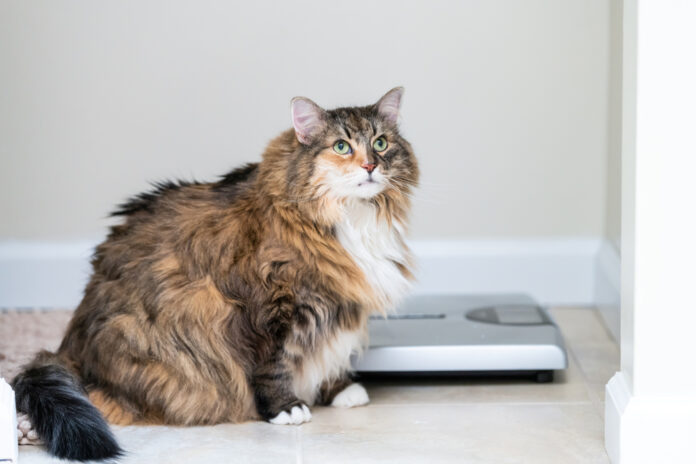Essential fatty acids for felines

Essential fatty acids not only give your cat a sleek coat and healthy skin but they can also help reduce inflammation and protect against cancer.
We hear a lot these days about reducing our fat intake, not only in ourselves, but in our animals as well. But the important thing to remember is that fats are not all bad. They’re an important part of your cat’s diet, and certain fatty acids are actually “essential” to keeping him healthy. These fats are considered essential because the the cat cannot make them in his own body – they need to be supplied by the diet. The main essential fatty acids that your cat’s diet needs to include are arachidonic acid (AA), eicosapentanoic acid (EPA) and docosahexaneoic acid (DHA).
Focus on fish oil
As a doctor, I usually don’t worry too much about whether or not my feline patients are getting adequate amounts of their required essential fatty acids. I’m typically more concerned about how I can use essential fatty acids, specifically fish oil (high in Omega-3 fatty acids EPA and DHA), to improve my patients’ health and help me fight disease in a natural way. Because of their ability to decrease inflammation in the body, Omega-3 fatty acids are helpful for numerous inflammatory conditions that occur in cats. These conditions include, but are not limited to, skin diseases (especially allergies), asthma, gastrointestinal disease (especially inflammatory bowel disease), arthritis, diseases of the immune system, and any kind of cancer.
Omega-3 fatty acids are most commonly found in high amounts in cold water fish such as salmon and tuna (and some vegetable sources such as walnuts and flax). Fish oil works in a number of ways to reduce inflammation and fight disease. In general, though, keep in mind that when using fish oil, you’re actually changing your cat’s cellular biology! That’s because the EPA and DHA in fish oil are actually incorporated into his cell membranes, changing their biochemistry. Cats eating diets that are high in the more inflammatory Omega-6 fatty acids also tend to have those fatty acids in their cell membranes, which can lead to disease. When you give your cat fish oil, you are essentially replacing some of the Omega-6 fatty acids in your cat’s cell membranes with the more healthy, less inflammatory Omega-3s.
Omega-3s and cancer
Omega-3 fatty acids (primarily EPA and DHA) has been shown to retard the growth of cancer and inhibit tumor development and metastasis. EPA and DHA inhibit the pro-inflammatory enzyme cyclooxygenase 2 (COX-2), an enzyme that leads to inflammation and therefore promotes cancer and many chronic diseases.
Omega-3 fatty acids activate a cell membrane receptor called peroxisome proliferator-activated receptor (PPAR), which is a key regulator of fat metabolism but is also capable of shutting down proliferative growth activity in many cells of the body, decreasing the chances of cancer development. Fish oils have anti-proliferative effects at high doses, reducing the growth of cancer cells. Fish oils also suppress the activation of NFKB, a pro-inflammatory gene switch (transcription factor) that is important to cancer cell initiation, promotion and survival.
Determining dosage
Probably the most important take-home message from this article is to learn how to properly dose fish oil for your cat. The standard dosages on most supplements may be fine to keep his hair shiny, but they’re way too low to use in the treatment of various diseases. Here’s a quick guideline to proper dosing.
Look at the product label, whether it be a liquid or capsule. Forget how much fish oil is in each daily dose (the label will define the daily dose as one capsule, one teaspoon, etc., depending on the product). What you’re really looking for is how much EPA and DHA is in each dose. Add together the amount of EPA and DHA from the recommended daily dose to get the total dose of active Omega-3s.
For most cats, I recommend 500mg of EPA+DHA twice daily. For example, if one capsule contains 500mg of EPA+DHA, your cat would get one capsule twice daily. If one capsule contains 100mg of EPA+DHA, your cat would get five capsules twice daily. This is why it’s a good idea to choose the most concentrated product you can find so you don’t have to give your cat too many capsules with each meal.
Fish oil is one of my favorite supplements for maintaining feline health and treating sick cats. A high quality product at the proper dose will help protect your own cat from the damage of inflammation, and reduce his risks of developing cancer.




